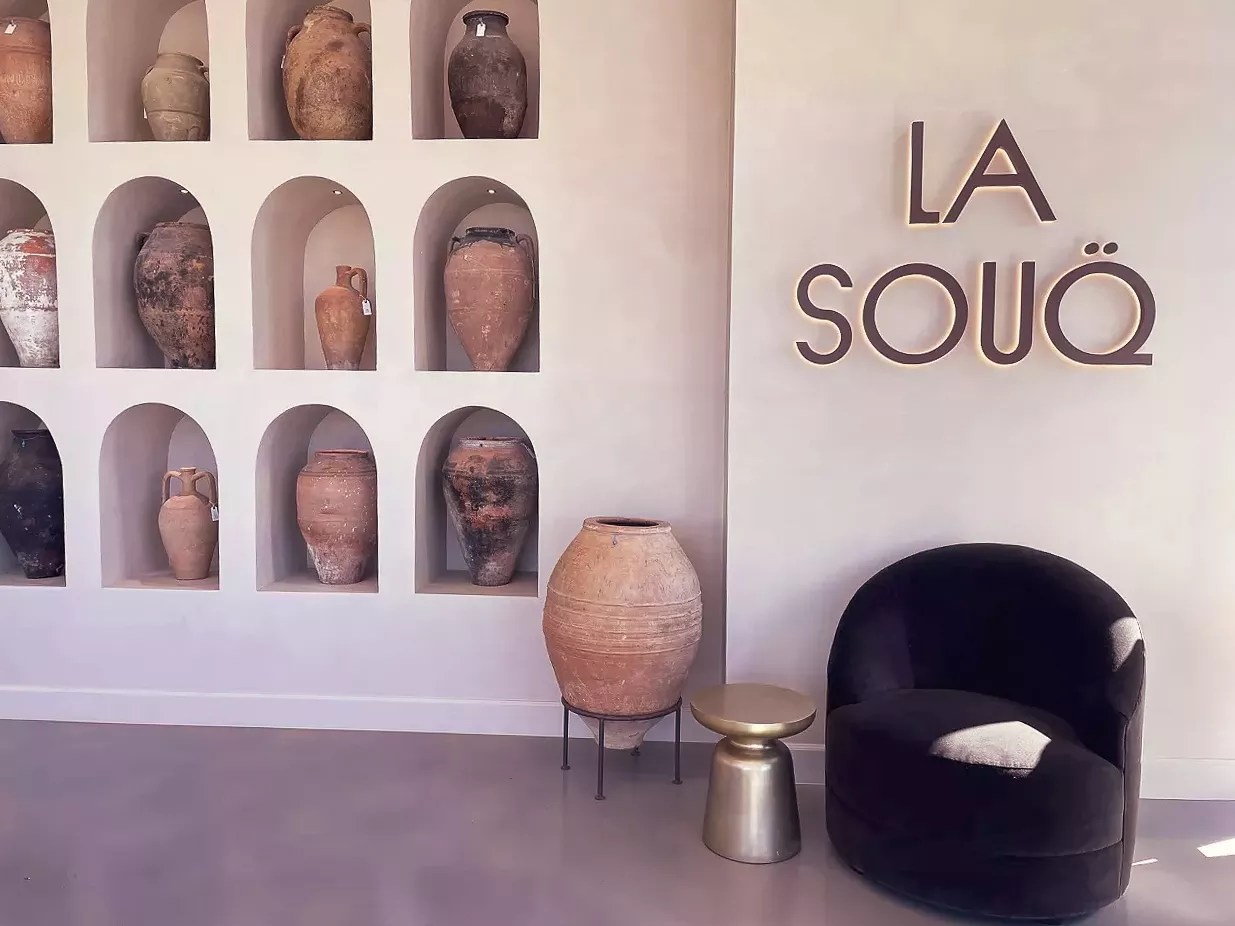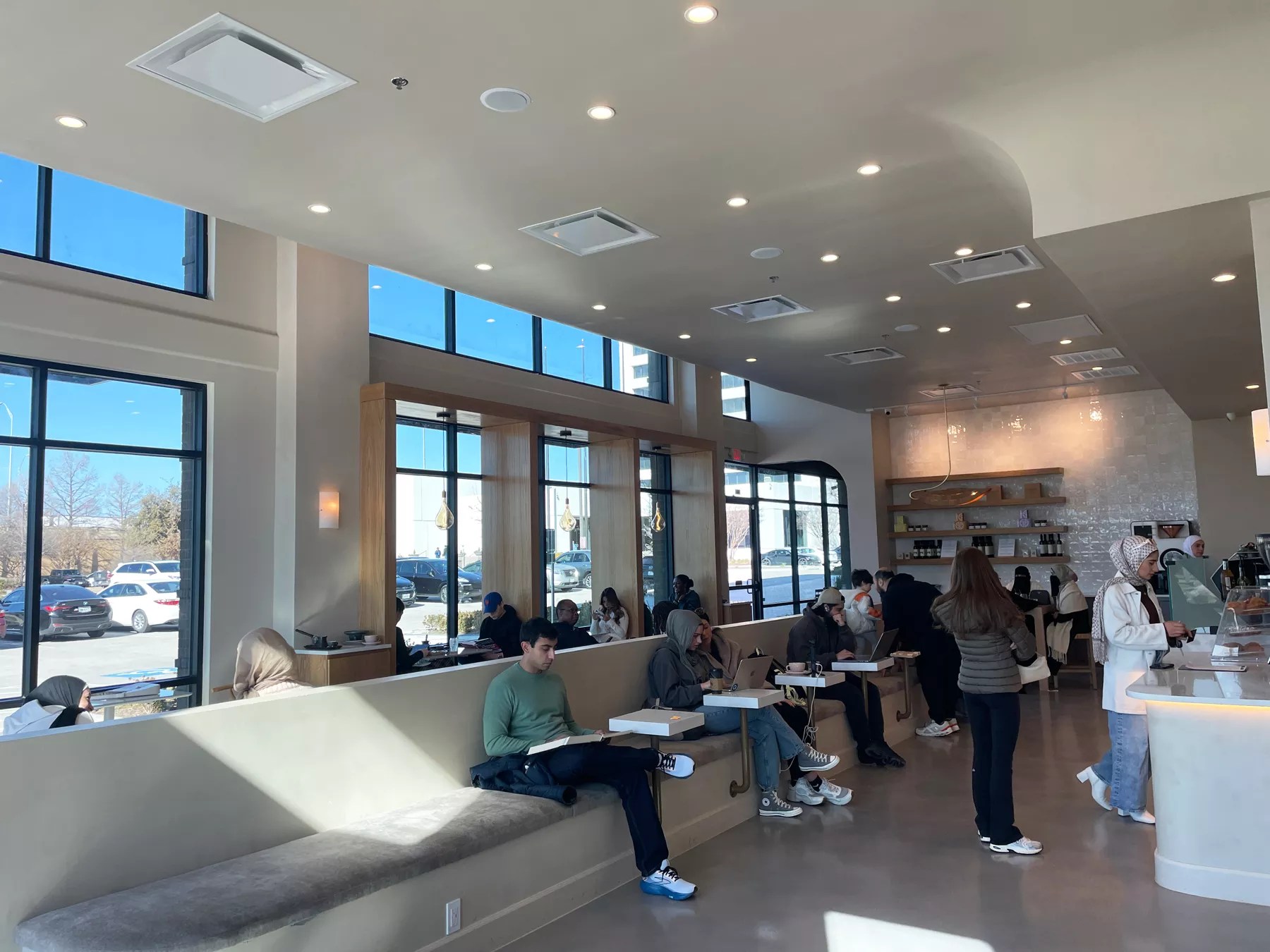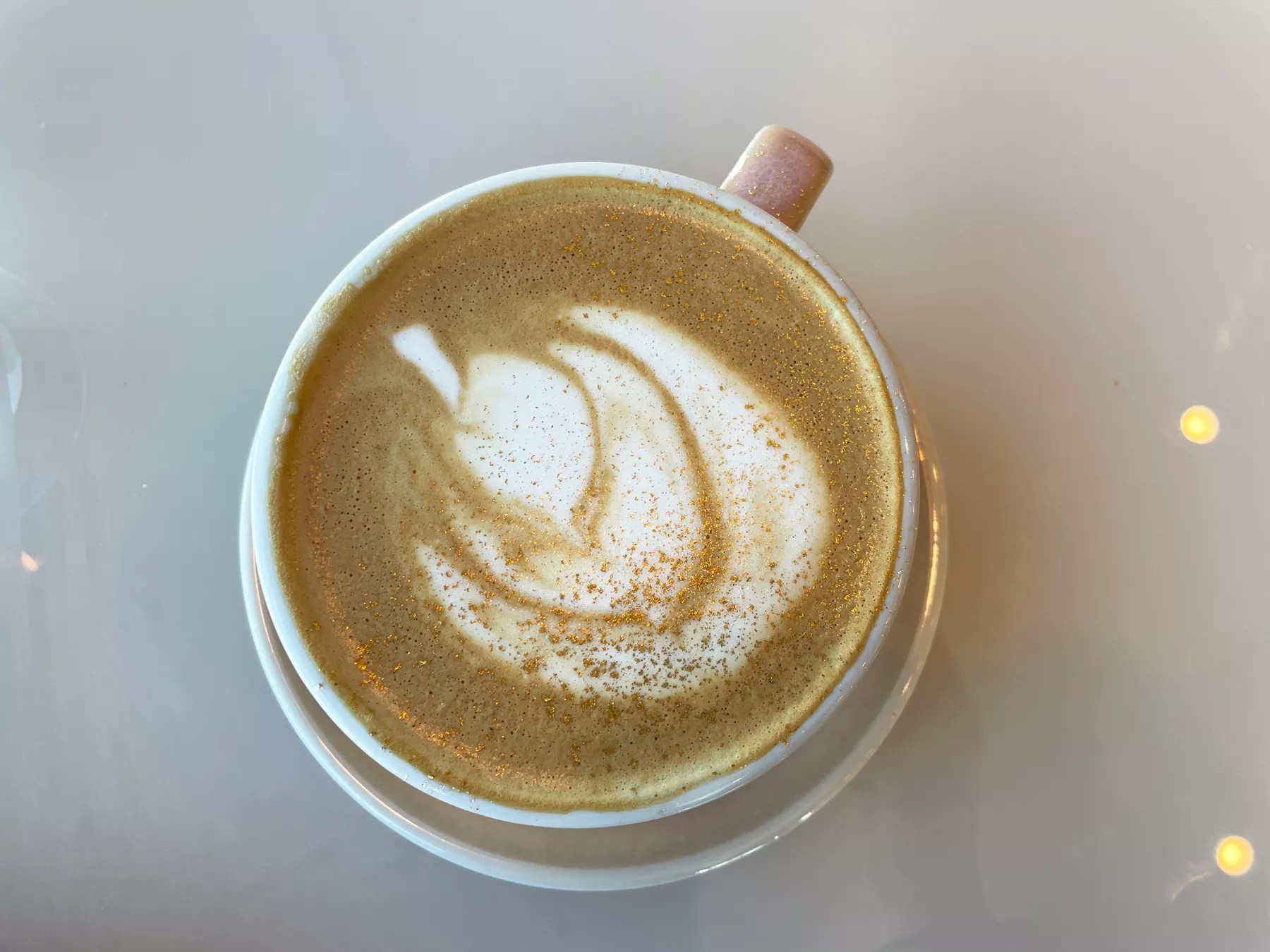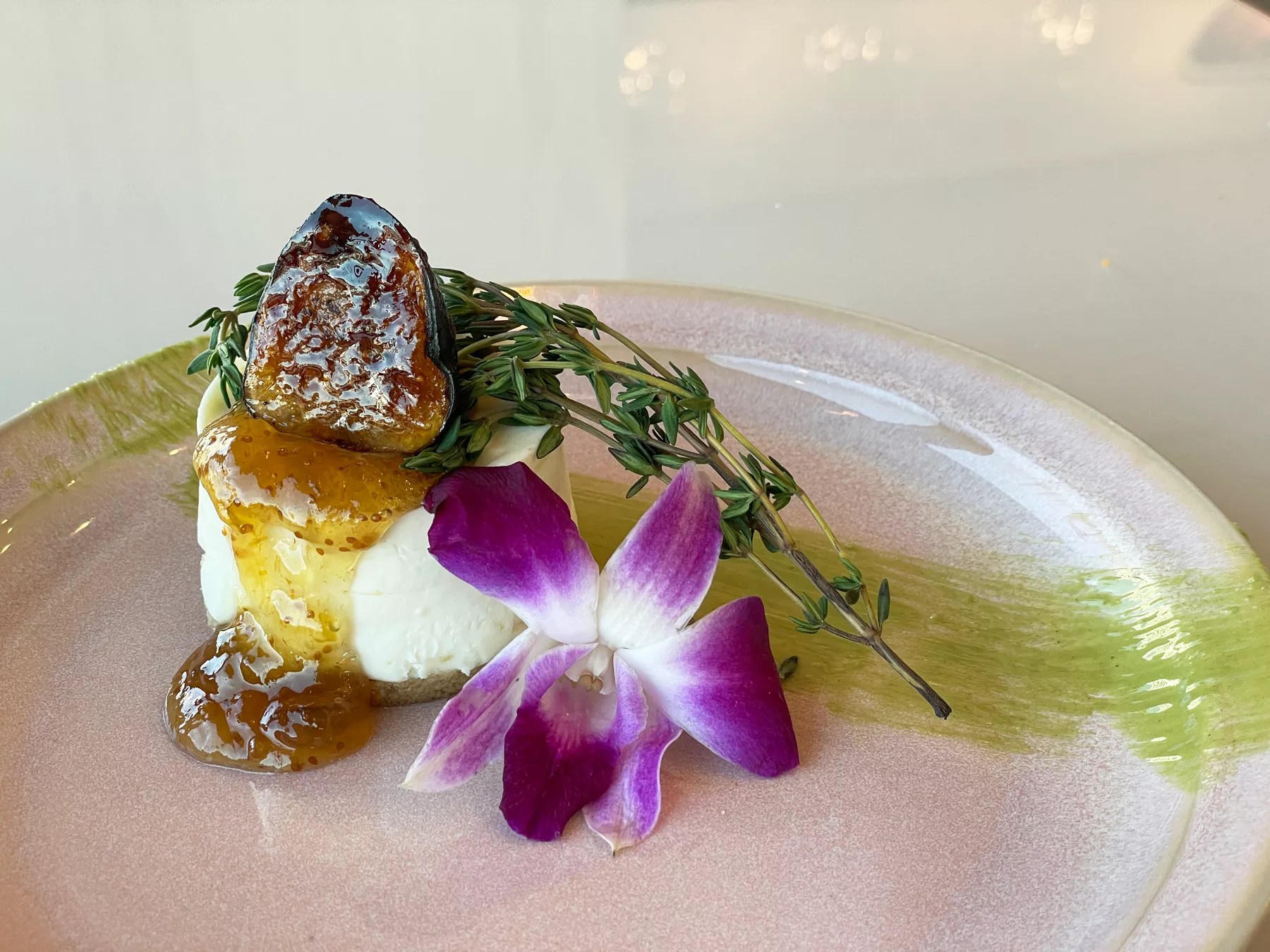
Aaren Prody

Audio By Carbonatix
La Souq is a Mediterranean and Middle Eastern-inspired cafe that opened in Richardson last month near the Beltline and Main development. It’s open late and serves coffee, tea and light plates with cultural twists that connect the owners and community to their heritage.
The name La Souq gives a deep dive into the personal history of owner Mateen Husain and his wife’s ethos and values. Souq, translated from Arabic, means an indoor or outdoor market loaded with a range of goods like spices, fabrics, ingredients and handmade items. For many living in the Middle East and near the Mediterranean, there is a level of nostalgia around being immersed in the sounds and smells of these markets.
The Q with the two dots above it (as it reads on its signage) resembles the word and pronunciation for souq in Arabic: سÙوق.
In French, nouns are given one of two articles depending on gender, ‘le’ for masculine and ‘la’ for feminine (both mean “the” in English). La is used here as a nod to the French-speaking countries along the Mediterranean such as Algeria, Lebanon, Egypt, Morrocco and Mauritius, where Husain lived for more than five years.
It’s also used to honor the women supporting the men at the souqs.
“When you go to these markets, they’re usually male-dominated,” Husain says. “I know many people whose fathers were butchers or bakers, but they wouldn’t have the success they did without the support of women behind them.”
It’s Husain’s goal to support women in the entrepreneurial space, from the local community all the way down to the women-owned and operated lots from which they source their coffee beans.

There’s plenty of seating to work or yap inside La Souq.
Aaren Prody
The cafe feels displaced, but not like you’d think. It has the air of a memorable cafe you’d visit when traveling abroad. Grabbing a coffee here, from start to finish, is an experience in itself. The name and atmosphere were inspired by a similarly named restaurant in Dubai, where Husain met his wife for the first time.
When you first walk in, there is a massive entryway decorated with antique olive jars from Turkey (if you’re interested, they’re for sale), a small velvet seat and a gold-plated La Souq logo. It sets the tone for the rest of the space: clean, modern and clear a lot of time was spent making sure every single detail is perfect, including the menu.
Specialty coffee beans are used in all the basic espresso drinks and signatures like the za’atar w’ zeit latte (thyme and olive oil) and the fig and cinnamon latte.
The chai – simmered low and slow using fresh herbs and milk – is from a local Dallas hand-blended chai company, Chai Wali. If you’re used to other chai lattes that use a concentrate, this is a must-order.

A pretty cafe with the pretty desserts to match? We love La Souq.
Aaren Prody
For food, the small pastry case near the entryway grabbed our attention first.
A small selection of pastries are rolled and baked in-house: traditional croissants, mixed berry muffins, pain au chocolat, toasted almond croissants and orange cardamom buns are the main offerings. Those are tempting, but not as much as the desserts: tahini chocolate mousse, chai tiramisu, saffron eclair and a labne and fig cheesecake.
If your coffee is sweet enough, the section of open-faced sandwiches (called Tartine Temptations) are unique and made to order. The menu starts simply with a PB&J and moves into more complex options like the Alaskan Aurora with brie, smoked salmon, tomato, cornichons, capers, dill and a fig reduction.
For my next trip, I’ll bring a plus-one and order the Turkish coffee pot for two, but instead, I went with the Aden Gold Rush latte made with cardamom and hot honey. And a piece of the labne and fig cheesecake, naturally.

La Souq’s aden gold rush latte: not too sweet with a nice cardamom infusion.
Aaren Prody
Aesthetics here do not come without a price tag. Our lattte with no modifications was $7.50, and a slice of cheesecake was $14. More basic items – like espresso drinks and pastries – average around the usual $5.
“In Muslim culture, we don’t drink alcohol, so this is a place where we can come to hang out and connect during later hours,” Husain says.
Swapping drinks for chai and cheesecake gives a whole new meaning to the nightcap ritual. In that context, the pricing here is much more manageable than a night out.
Our Aden Gold Rush latte rides the line between too sweet and just right. Cardamom is infused into the drink, giving it a prominent flavor throughout. While you’d expect a kick from the hot honey, it’s all sweet with no heat.

The labne and fig cheesecake at La Souq is made in-house and finished with the perfect carmelized fig on top.
Aaren Prody
Paying $14 for no more than five bites of cheesecake is out of my usual wheelhouse, but I can give credit where it’s due.
These are made in-house, which is uncommon for a cafe. Labne is used in place of cream cheese, giving it a delicate and fluffy texture. A slather of fig jam garnishes the top, but it can overtake the rest of the cheesecake, so dab sparingly. When proportioned right, it adds a nice earthy sweetness that balances the cheesecake’s richness.
What’s interesting is that at any full-service restaurant, a dessert with this level of detail would likely cost as much. It could be the cafe setting that puts this cheesecake under a magnifying glass. Nevertheless, I enjoyed it.
Be on the lookout for events at La Souq. They have a long table ready for hosting latte art classes and workshops, plus an open area in front of those antique pots for pop-ups featuring women-owned companies.
La Souq, 150 W. Main St., Sunday – Thursday, 8 a.m. – 8 p.m.; Friday/Saturday, 8 a.m. – 10 p.m.